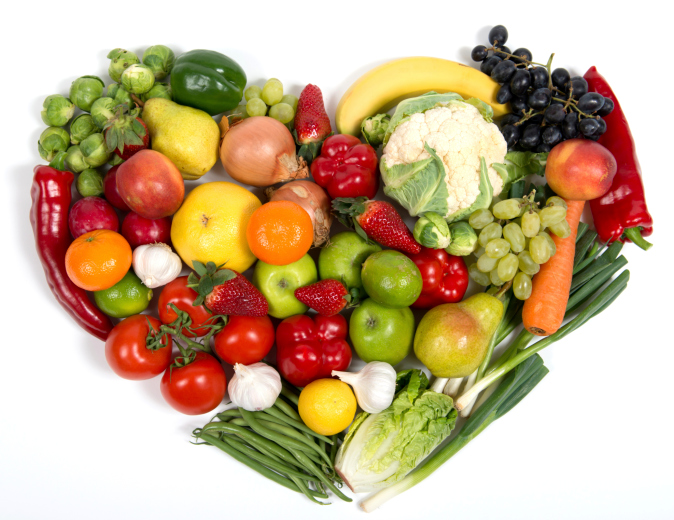Heart disease is the number one killer of Americans, according to the American Heart Association. The World Health Organization says that cardiovascular disease claims 17.3 million lives a year. If you’re looking to reduce your risk of heart disease, the first step you can take is to have a healthier diet.
As part of a healthy diet, the American Heart Association recommends that an adult consume a total of 2,000 calories daily, made up of the following:
– Fruits and vegetables: At least 4.5 cups a day
– Fish (preferably oily fish): At least two 3.5-ounce servings a week
– Fiber-rich whole grains: At least three 1-ounce-equivalent servings a day
– Sodium: Less than 1,500 mg a day
– Sugar-sweetened beverages: No more than 450 calories (36 ounces) per week
– Nuts, legumes and seeds: At least 4 servings a week
– Processed meats: No more than 2 servings a week
– Saturated fat: Less than 7% of total energy intake
Whether you want to make an improvement after years of unhealthy eating, or you just want to maintain a healthier diet, Health Advocate recommends the following changes that can help you jump-start your way toward a heart-healthy diet.
Eat smaller, fewer portions.
- Control your portion size. How much you eat is just as important as what you eat. Overloading your plate and eating until you feel stuffed can lead to consuming more calories, fat and cholesterol than is beneficial.
- Keep track of how many servings you eat. For example, one serving of pasta is 1/2 cup, while a serving of meat, fish or chicken is 2 to 3 ounces. You may need to use measuring cups and spoons or a scale to figure out your portions until you’re comfortable with eyeballing them on your own.
- Still hungry? Try eating more of a low-calorie, nutritious food, such as a fruit or vegetable, if you’re still craving more to eat.
Add more fruits and vegetables.
- Fruits and vegetables are not only low in calories, they’re also rich in dietary fiber.
- Eating vegetables and fruits may help prevent cardiovascular disease, according to the Mayo Clinic.
- Eating more fruits and vegetables may curb your appetite for high-fat food, processed foods and snack foods. Cut up various fruits and vegetables and keep them in the refrigerator for easy snacking. For extra flavor, try a nutritious dip on the side, such as hummus, or spread some nut butter on celery or apples.
Eat heartier grains.
- Incorporate whole grains–a good source of fiber, plus they can help regulate blood pressure—into your diet.
- Rather than reaching for a donut for breakfast, cook up some oatmeal. Instead of white rice on the side for dinner, try a whole-grain substitute like quinoa or brown rice.
Decrease the bad fat.
- Limit any unhealthy fats in your diet, such as saturated and trans fats; this is an important step to reduce your blood cholesterol and lower your risk of coronary artery disease.
- Try eating low-fat substitutes when possible. Instead of butter on your baked potato, try some low-calorie margarine. Instead of buttering your whole-wheat toast, try using a low-sugar fruit spread.
- Also try to incorporate “good” fats– monounsaturated fats, such as olive oil or canola oil–into your diet. Polyunsaturated fats, found in nuts and seeds, are also good choices for a heart-healthy diet.
Don’t forget to check labels.
- When you’re in the grocery store, check food’s ingredient listings for trans fats–some snack foods like crackers, chips and cookies contain them.
- Even some products that say “reduced fat” on the packaging contain hidden trans fats. Look out for “partially hydrogenated” in the ingredient list—it’s a trans fat you’ll want to limit or avoid.
Want more help eating healthier and keeping your heart happy? Consider making an appointment with your family doctor or a registered dietician. If you’re a Health Advocate member, you can reach out to us for help finding a healthcare professional to talk to you about heart health and your diet.



